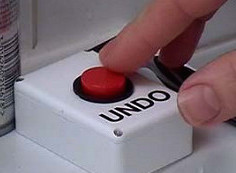Back in the 1970s, the 7-Up soft drink company began marketing their product as “The Un-Cola.” It was their way of differentiating their clear and color-less beverage from the caramel-colored soft drinks like Coke and Pepsi that were dominating the market. In their ads, they would proclaim that everything their competitors were, the “Un-Cola” wasn’t.
But that approach can be a double-edge sword. I’m betting you could come up with plenty of “un” words to describe the brand and culture of YOUR organization….and not all of them positive.
Just like you’re not allowed to give yourself your own nickname—(believe me, some folks have tried, but it just doesn’t work!)—you can’t really magically establish your own organizational culture. It’s a result of performance and perception, and like your brand, evolves over time. Your organizational culture exists whether or not you ever took any steps to create one…or are even aware of it.
And in a lot of cases, the quickest way to define it is with those “un” words. “Un-fortunately.”
For example, is your mission statement “un-clear”? Or “un-certain”? Or, more likely, “un-publicized”?
Are your strategic plan and vision “un-imaginative”? Or “un-informed”?
Is your leadership team “un-available” when you need them? And “un-seen” in times of crisis?
Are promising young members of your team left “un-developed” or “un-trained”?
If your attitude toward staff is “un-caring,” your employees may wind up feeling “un-motivated,” “un-inspired,” and “un-dervalued.” (OK, that last one’s a stretch, but you know what I mean.)
Creating a work environment in which your employees are energized and focused is a huge step toward institutional success. Happy and engaged employees are productive employees. Un-happiness is un-productive.
Taking a hard and honest look at your organizational culture can often be a first step toward making changes that will set you on a more successful path.
When management remains “un-aware” of these issues, it often proves to be their “un-doing.”
And even if those first action steps present major challenges, aren’t they still worth working toward?
“Un-doubtedly!”
So “un-leash” your creativity, and “un-dertake” the changes that need to be made.
You may find that so many good things come as a result that it’s….well, “un-believable!”

